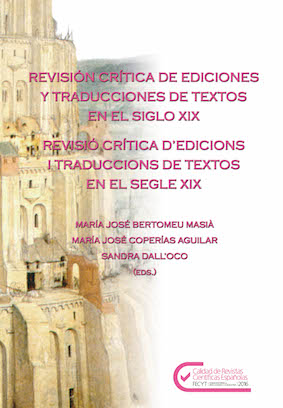Critical revision of the edition by L.P. Gachard of Lettres de Philippe II a ses filles les Infantes Isabelle et Catherine: écrites pendant son voyage en Portugal (1581-1583) and evolution of later editions in the 20th century
DOI:
https://doi.org/10.7203/qdfed.22.11251Keywords:
text editing, diplomatic editing, informative editing, collection of letters, Felipe II Abstract
Abstract
Grounding on the documents Lettres de Philippe II a ses filles les Infantes Isabelle et Catherine: écrites pendant son voyage en Portugal (1581-1583) edited by L.P. Gachard, we expect to revise critically the methodology used for the editions of the texts by the Belgian historian in the second half of the xix century. This documentation was published in 1884 and reprinted by Luisa Elena del Portillo Díaz around 1943 and then by the Spanish historian Fernando Bouza in 1988. It is our intention to revise Gachard’s edition in the light of new editions, paths and progresses, if any, in the edition of one text over a century.
 Downloads
Downloads
Published
How to Cite
-
Abstract527
-
PDF (Español)267
-
PDF124
-
PDF (Català)118
Issue
Section
License
 Este obra está bajo una licencia de Creative Commons Reconocimiento-NoComercial-SinObraDerivada 4.0 Internacional.
Este obra está bajo una licencia de Creative Commons Reconocimiento-NoComercial-SinObraDerivada 4.0 Internacional.
Authors who publish with this journal agree to the following terms:
- Authors retain copyright and grant the journal right of first publication with the work simultaneously licensed under a Creative Commons Attribution License that allows others to share the work with an acknowledgement of the work's authorship and initial publication in this journal.
- Authors are able to enter into separate, additional contractual arrangements for the non-exclusive distribution of the journal's published version of the work (e.g., post it to an institutional repository or publish it in a book), with an acknowledgement of its initial publication in this journal.
- Authors are permitted and encouraged to post their work online (e.g., in institutional repositories or on their website) prior to and during the submission process, as it can lead to productive exchanges, as well as earlier and greater citation of published work (See The Effect of Open Access).




